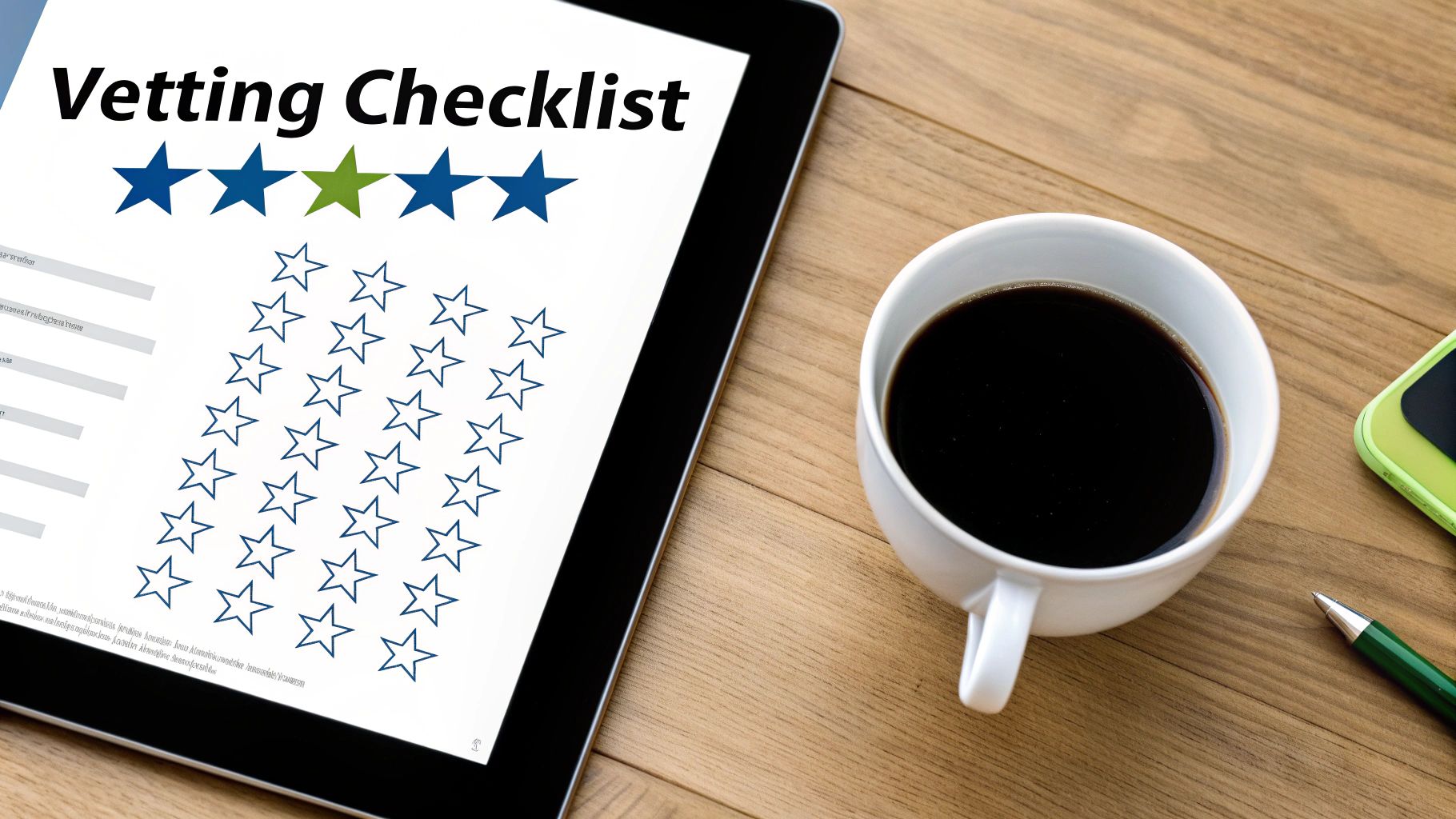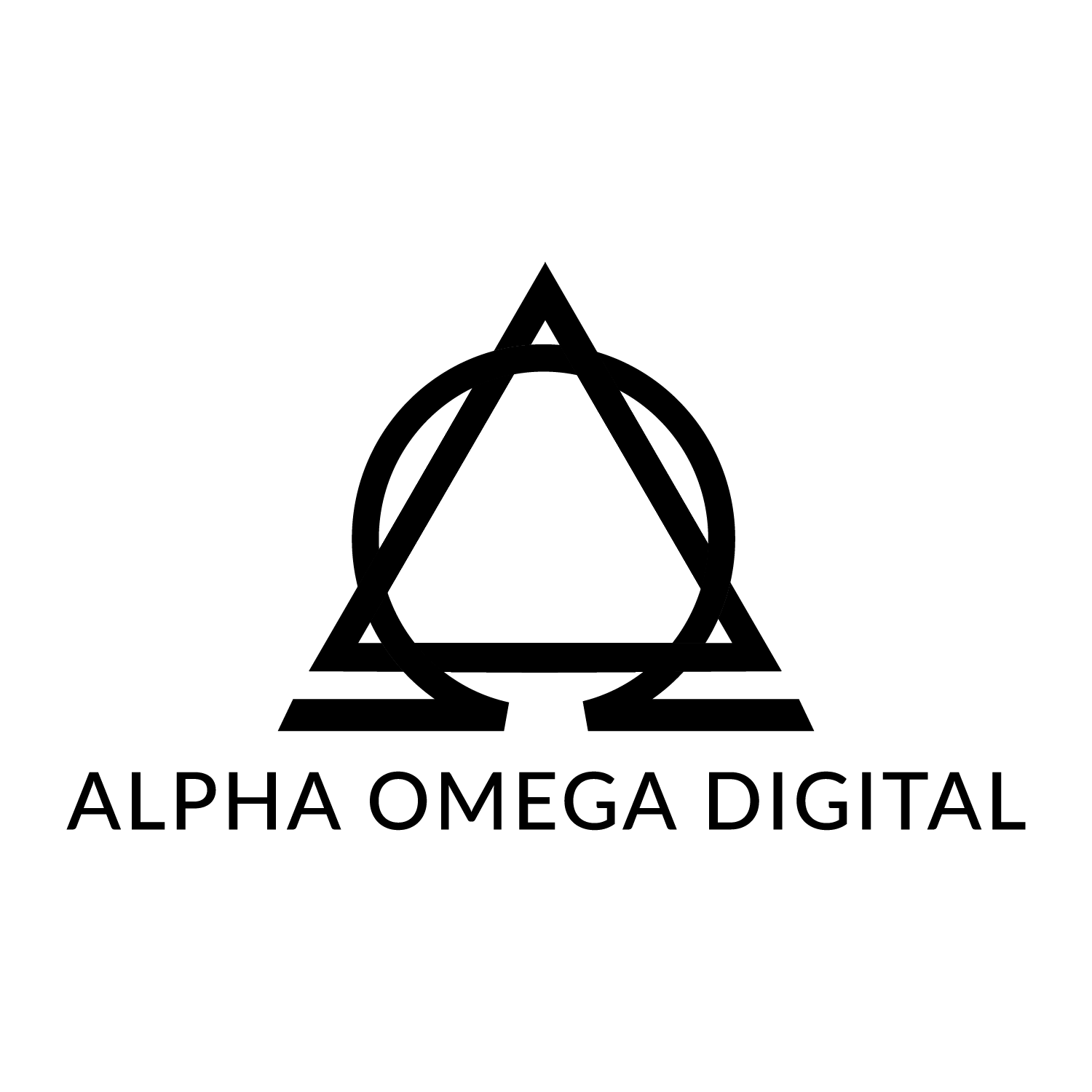Home / Blog / Details
Uncategorized
google ads agency sydney: How to pick the right partner
Uncategorized
Look, a top-tier Google Ads agency in Sydney does a whole lot more than just throw money at keywords and hope for the best. They dig into your entire ecommerce ecosystem to find what actually drives profitable growth. From my experience, a real specialist partner gets their hands dirty, diving deep into your technical setup and campaign structure to make sure every single dollar you spend is pulling its weight and delivering a solid Return On Ad Spend (ROAS).
Why Your Ecommerce Store Needs a Specialist Agency

I’ve seen it time and time again: Shopify and WordPress stores struggling to get any real traction with Google Ads. They hire a generalist agency that treats their ecommerce account like any other lead-gen campaign for a service-based business, getting obsessed with clicks instead of actual sales. This is a massive mistake. Ecommerce is a completely different beast.
A specialist agency gets that a successful campaign starts long before you spend your first dollar. It all begins with a rock-solid technical foundation.
The Technical Edge of an Ecommerce Specialist
From my own experience, the agencies that deliver the best results for ecommerce brands are the ones that aren’t afraid to get into the technical weeds. They’re not just marketers; they’re technical problem-solvers who understand how platforms like Shopify and WordPress work from the inside out.
They know exactly how to handle:
- WordPress & Shopify Development: Whether it’s Shopify design, WordPress design, or building custom blocks in Gutenberg, they understand the platform’s architecture.
- Tracking Setup: They’ll masterfully set up Google Tag Manager containers and handle the Conversions API installation for Meta to ensure accurate data flow.
- API Integrations: They leverage the Shopify API for custom reporting or even build custom Shopify apps using Shopify CLI when needed.
This technical skill set is what separates an average agency from a great one. A generalist might set up basic conversion tracking, but an ecommerce specialist will make sure your data is clean, accurate, and feeding Google’s algorithm the right signals to find you more customers.
I once worked with a client whose previous agency couldn’t figure out why their Google Shopping ads were not spending their budget. Turns out, the issue wasn’t the bidding strategy at all; it was a poorly configured product feed caused by a technical glitch in their Shopify setup. A specialist diagnosed and fixed it in a single day.
Strategy That Goes Beyond Clicks
Beyond just the tech stuff, a true specialist Google Ads agency in Sydney brings a strategic depth that generalists just don’t have. They have firsthand experience with the tiny details and nuances of ecommerce advertising. For instance, when you’re weighing up a Google Ads agency, it’s worth understanding how their skills stack up against other partners, like a dedicated YouTube Ads agency, as each will focus on different platforms to get you the best results.
A good partner will guide you on critical decisions like setting the campaign priority in Google Ads and the ongoing debate of PMAX vs. standard Google Shopping ads, tailoring the approach to your specific business goals. That’s the real difference between just “running ads” and building a profitable, scalable growth engine for your store.
Defining Your Goals and Budget Before You Search

Walking into a meeting with a potential Google Ads agency in Sydney without clear goals is like trying to build a house without a blueprint. It’s a recipe for wasted time, confusion, and a whole lot of wasted money.
Before you even think about shortlisting agencies, you need to know exactly what success looks like for you. For an e-commerce brand, that means focusing on online sales through your Shopify or WordPress store. This is a completely different goal from a service business that might just want contact form submissions.
I always recommend doing a little homework first. A bit of competitive analysis goes a long way. Seeing what your rivals are up to helps ground your expectations, gives you a benchmark to aim for, and helps you set realistic Key Performance Indicators (KPIs) from day one.
Setting Realistic Ecommerce KPIs
If you’re running an online store, your KPIs should revolve around one thing: profit. Don’t let an agency dazzle you with vanity metrics like clicks or impressions. They look nice on a report but don’t pay the bills.
Here’s what actually moves the needle:
- Return On Ad Spend (ROAS): This is your north star. For every single dollar you put into ads, how many dollars in revenue are you getting back?
- Cost Per Acquisition (CPA): How much does it cost, on average, to win a new customer? This number needs to sit comfortably below your average customer lifetime value.
- Conversion Rate: What percentage of people who click your ad actually end up buying something? Nudging this number up is the key to scaling your campaigns profitably.
Answering the Big Budget Question
So, how much should you actually spend on Google Ads? This is the question I get asked most often, and honestly, there’s no magic number. A common mistake is just plucking a figure out of thin air.
A much better approach is to frame your ad budget as a percentage of your total revenue or, even better, your target revenue. This way, your ad spend is tied directly to real business performance.
Here in Sydney, the average cost-per-click can bounce between A$2 to A$4. While a healthy ROAS target to aim for is 200%, I’ve seen too many campaigns fizzle out within the first 90 days simply because they were underfunded or the business owner gave up too soon. Marketing your business is all about consistency.
For a small ecommerce business, a starting budget of at least A$1,000 to A$2,000 a month is a realistic starting point. But be ready to scale that up as the data starts rolling in.
Here’s a better way to figure out your starting budget: work backwards. Let’s say your average order value is $100 and you want to make 50 sales a month. That’s $5,000 in revenue. If you aim for a 4x ROAS (meaning for every $1 you spend, you make $4 back), then your ad budget should be $1,250. This data-driven approach gives you a solid foundation and makes for a much more productive conversation with any agency you talk to.
Your Agency Vetting Checklist

Finding the right Google Ads agency in Sydney isn’t about picking the first result you see on Google. Trust me on this one. I’ve spent years developing a mental checklist to separate the real experts from the talkers, and it all comes down to asking the right questions. You have to dig deeper than surface-level promises of “great results.”
A great agency won’t just talk about bids and budgets; they’ll geek out on the technical details that actually drive performance for ecommerce stores. They understand that a winning campaign is built on a foundation of solid data and a deep understanding of your entire tech stack.
Technical and Platform Proficiency
Before we even get to strategy, you need to know if they have the technical chops. A slick sales pitch means absolutely nothing if they can’t handle the backend setup that makes everything work. This is especially true for Shopify and WordPress stores, where small technical errors can completely derail your campaigns.
Here are the non-negotiables I’d be asking about:
- Tracking and Analytics: “Can you walk me through your process for setting up a new Google Tag Manager container and implementing the Meta Conversions API for a Shopify store?” A confident, detailed answer shows they understand modern tracking challenges.
- Development Skills: “Have you ever built custom Gutenberg blocks for a WordPress site or developed a custom Shopify app using the Shopify CLI?” Even if you don’t need this now, it proves they have a deep, practical understanding of the platforms. I’ve seen this kind of expertise save projects.
- Platform Nuances: “What’s your experience with setting up and troubleshooting an Instagram Shop or Facebook Shop feed?” This shows they get the broader social commerce ecosystem.
The best agencies I’ve worked with are the ones who aren’t afraid to get their hands dirty with code. They see themselves as an extension of your development team, not just your marketing team. That’s the mindset you want.
Ecommerce Campaign Strategy
Once you’ve confirmed their technical skills, it’s time to test their strategic thinking. An agency that only talks about keywords is a major red flag. True ecommerce specialists think in terms of product feeds, campaign structures, and creative testing.
Drill down into their specific ecommerce experience:
- Shopping Ads Expertise: “How do you approach setting campaign priority in Google Ads for a client with multiple Shopping campaigns? When would you recommend PMAX over a standard Google Shopping campaign?” Their answer will instantly reveal their depth of knowledge. This is more than a beginner’s guide to Google Shopping ads; this is advanced strategy.
- Niche Experience: “Can you share a success story about running Google Shopping ads for a dropshipping business? What were the unique challenges?”
- Creative Process: “Show me your Meta ads creative testing process. How do you identify winning ads and scale them?” A good Facebook ads agency will have a robust framework for this.
A top-tier agency will have clear, structured answers to these questions. They’ll show you frameworks and processes, not just vague promises.
To make this easier, I’ve put my go-to questions into a table. Think of this as your cheat sheet for those initial calls. It’s designed to cut through the fluff and get right to what matters: their real-world expertise in making ecommerce businesses grow.
Essential Questions for a Potential Google Ads Agency
| Area of Expertise | Key Question to Ask | What a Good Answer Looks Like |
|---|---|---|
| Tracking Setup | “How do you ensure our tracking and attribution are accurate, especially with iOS 14+ changes?” | They should immediately mention server-side tracking, the Meta Conversions API (CAPI), and a first-party data strategy. Bonus points for talking about value-based bidding. |
| PMAX Campaigns | “What’s your process for optimising a Performance Max campaign beyond just setting a budget?” | Look for answers about asset group testing, refining audience signals, using data feeds correctly, and excluding brand terms to measure incremental lift. |
| Creative Strategy | “Can you show us a real example of a creative testing framework you use for Meta ads?” | A great agency will have a documented process. They’ll talk about A/B testing hooks, different angles, UGC vs. polished studio creative, and how they use data to iterate. They won’t quit on ads too early. |
| Communication | “What does your reporting and communication rhythm look like? How do we know what you’re working on?” | They should offer more than just a monthly PDF report. Expect weekly updates, a shared dashboard (like Looker Studio), and a dedicated point of contact. |
| Platform Expertise | “When would you choose a standard Shopping campaign over PMAX for an ecommerce store?” | A nuanced answer is key. They might suggest Standard Shopping for more granular control over specific products or for brands with very tight budgets, showing they don’t just default to the newest thing. |
Using these questions will help you audit their real-world skills, ensuring you partner with a Google Ads agency in Sydney that can truly move the needle for your ecommerce brand. Don’t be afraid to press them for details—the best agencies love to show their work.
Untangling Agency Pricing Models and Spotting the Red Flags
Navigating agency pricing can feel like a minefield. Once you start talking to any Google Ads agency in Sydney, you’ll find they usually structure their fees in a few common ways. Each model has its own quirks, and what works for one business might be a disaster for another.
Knowing how they charge is one thing. But learning to spot the warning signs is what will save you a world of pain and wasted ad spend down the track.
The Most Common Ways Agencies Charge
In my experience, almost every agency proposal will land in one of three buckets. There’s no single “best” option—it really comes down to your budget, how much you’re spending, and what you’re comfortable with.
- Percentage of Ad Spend: This is a classic. The agency takes a cut of your monthly ad budget, usually somewhere between 10-20%. It’s straightforward, but the big risk here is that it can incentivise the agency to simply spend more of your money, not necessarily to spend it smarter.
- Flat Monthly Retainer: My personal preference for most businesses. You pay a fixed fee every month, no matter what your ad spend is. This structure puts the focus squarely on performance—the agency has to deliver great results to prove their value and keep you on as a client.
- Performance-Based: This sounds like a dream come true on paper. You only pay for actual results, like sales or leads. The catch? The commission rates are often sky-high, and the contracts can be incredibly complex and restrictive, locking you in longer than you’d like.
Red Flags That Should Make You Hit the Brakes
Beyond the pricing structure, there are some serious warning signs I’ve learned to watch out for over the years. A slick presentation can easily mask a dysfunctional or even dishonest operation.
The absolute biggest red flag for me is a guaranteed ROAS. I can’t stress this enough. No honest, professional agency can guarantee results. Markets shift, competitors get aggressive, and Google updates its algorithm without warning. Promising a specific return is a desperate sales tactic, not a professional commitment.
Another dealbreaker is a lack of transparency. You, the client, must have full ownership and admin access to your Google Ads account from day one. If an agency insists on running campaigns through their master account, walk away. You should always own your data and campaign history, period.
A huge hidden cost that catches so many businesses off guard is wasted ad spend on irrelevant search terms. Your agency needs to be completely transparent about where every dollar is going. If they can’t show you, you could be burning a massive chunk of your budget without even realising it.
This has become a major headache for Sydney businesses, especially since Google’s 2020 update that made search query data less visible. Agencies now report that up to 85% of the search terms that trigger your ads are hidden from view. This means a huge slice of your budget could be disappearing on clicks from irrelevant, unoptimisable keywords.
You can learn more about how hidden search terms impact your ad spend on crazeformarketing.com.au. A great way to test an agency’s expertise is to ask them directly how they plan to tackle this challenge. Their answer will tell you everything you need to know about their commitment to transparency and protecting your budget.
What a Great Onboarding Process Looks Like
So, you’ve signed the contract. This is where the real work begins, and a smooth, structured onboarding process is where a top-tier Google Ads agency in Sydney really shows its value. This initial phase sets the tone for the entire partnership. It’s critical.
The very first thing a good agency should do is a deep technical audit. I’ve seen far too many agencies jump straight into building campaigns without ever checking the foundations. A true partner will immediately ask for access to your Google Analytics, Google Tag Manager (GTM), and Merchant Center accounts to look for cracks in the plumbing.
They’ll be asking the important questions: Is conversion tracking actually firing correctly? Is the GTM container set up to capture all the e-commerce events you need? Is the Meta Conversions API even implemented properly for cross-channel attribution? Fixing these technical gremlins is non-negotiable. It’s the only way to ensure every dollar you spend is tracked accurately from day one.
Setting Expectations for the First 90 Days
Once the technical side is buttoned up, the focus shifts to strategy and communication. A great onboarding process isn’t just about getting backend access; it’s about aligning on your goals and creating a clear roadmap for the first 30, 60, and 90 days.
This should involve a proper kickoff meeting or workshop where you get into the weeds on:
- Real Business Goals: A good agency will dig deeper than just “increase sales.” What are your profit margins? Who is your ideal customer, not just any customer? What’s your customer lifetime value? These numbers shape everything.
- Creative Briefing: You’ll hand over brand assets, logos, and product imagery. In return, they should outline their initial creative testing process for Performance Max and any paid social campaigns.
- Campaign Structure: They should present their proposed account structure and explain why they’re organising campaigns a certain way—whether it’s by product category, performance tiers, or using PMAX vs. standard Shopping. The goal is to maximise control and make scaling easier later on.
A sign you’re working with a professional agency is their focus on early wins and honest communication. They should be upfront that the first month is about building foundations and gathering data, with performance really ramping up in months two and three. They don’t promise the world overnight; they promise a smart, methodical process.
Transparent Reporting From Day One
Finally, a solid onboarding process establishes the reporting rhythm right from the start. You should know exactly what metrics they’ll be tracking, how often you’ll get reports, and what format they’ll use. Don’t be afraid to ask for a sample report or a walkthrough of their dashboard.
A quality report from a Sydney-based agency should do more than just spit out clicks and impressions. It needs to provide detailed breakdowns of performance by location, device, and even time of day. This is the granular insight that allows you to make smarter decisions about your budget and see where the real improvements are coming from.
Many agencies find their clients see a significant drop in their cost-per-acquisition (CPA) and a healthier sales pipeline within the first 90 days, precisely because of this data-led approach. You can get more insights on what to expect from a leading PPC agency from clickclickmedia.com.au.
The onboarding phase is your first real glimpse into how an agency operates. It should feel collaborative, organised, and laser-focused on setting your account up for sustainable, profitable growth.
Common Questions About Hiring a Sydney Agency
Even after sorting through the checklists and vetting candidates, you probably still have a few questions buzzing around. That’s completely normal. Hiring a Google Ads agency in Sydney is a big decision, and these are the exact questions I get asked all the time by e-commerce owners just like you.
Here are some straight-to-the-point answers to the most common ones I hear.
How Long Until I See Real Results?
This is the big one, isn’t it? The honest answer is: it depends, but you should absolutely see positive signals within the first 90 days.
The first month is all about laying the groundwork. Think audits, getting tracking set up perfectly, and launching initial campaigns to gather data. You’re not likely to see a huge ROAS right out of the gate, and that’s okay.
By month two, the agency should be actively optimising based on that early data. You should start to see key metrics like your cost-per-acquisition (CPA) coming down and your conversion volume starting to climb. By the end of that first quarter, you should have a really clear picture of what’s working and a solid foundation to start scaling from.
Anyone promising you incredible, immediate results from day one is selling you a fantasy. Real, sustainable growth takes a bit of time to build. Be patient, but also expect to see clear, measurable progress month over month.
What’s My Role in the Process?
Your involvement is crucial, especially at the start. You’re the expert on your brand, your products, and your customers. A great agency won’t just take your money and disappear into a black box; they’ll want to partner with you.
You should expect to be most involved during:
- Onboarding and Strategy: This is where you provide deep insights into your business goals, profit margins, and ideal customer profile. The more you give them, the better they can perform.
- Creative Approvals: You’ll be giving feedback on ad copy, images, and video creative to make sure everything aligns with your brand’s voice and feel.
- Regular Check-ins: Plan on participating in weekly or bi-weekly calls to review performance, talk about what we’re learning, and plan the next steps together.
Once the campaigns mature and are humming along, your direct involvement might decrease a bit, but you should always feel like you’re in the loop and have the final say on big strategic decisions. It’s your business, after all.
How Do I Know When to Switch Agencies?
Sometimes, even with the best intentions, a partnership just doesn’t work out. The key is to make this decision based on data and patterns, not just a gut feeling after one bad week.
It might be time to start looking for a new agency if you notice a consistent pattern of:
- Poor Communication: Are you constantly chasing them for updates or reports? That’s a red flag.
- Stagnant Performance: After that initial 90-day period, if you’re seeing no meaningful improvement in your core KPIs, something’s wrong.
- Lack of Proactivity: A good agency brings new ideas and strategies to the table. If they’re just coasting, they aren’t invested.
- Transparency Issues: You should always have full access to your own accounts and get clear, understandable reporting on how your ad spend is being used.
Don’t be afraid to make a change if things aren’t right. Your ad spend is a critical investment, and you need a partner who is just as committed to your growth as you are.
Alpha Omega Digital is a marketing agency based in Melbourne, Australia but also services clients from Sydney, Brisbane, Newcastle, Perth, Adelaide, Darwin and Hobart. Have a project in mind? Contact me here.

Your Comment
Your email address will not be published. Required fields are marked *